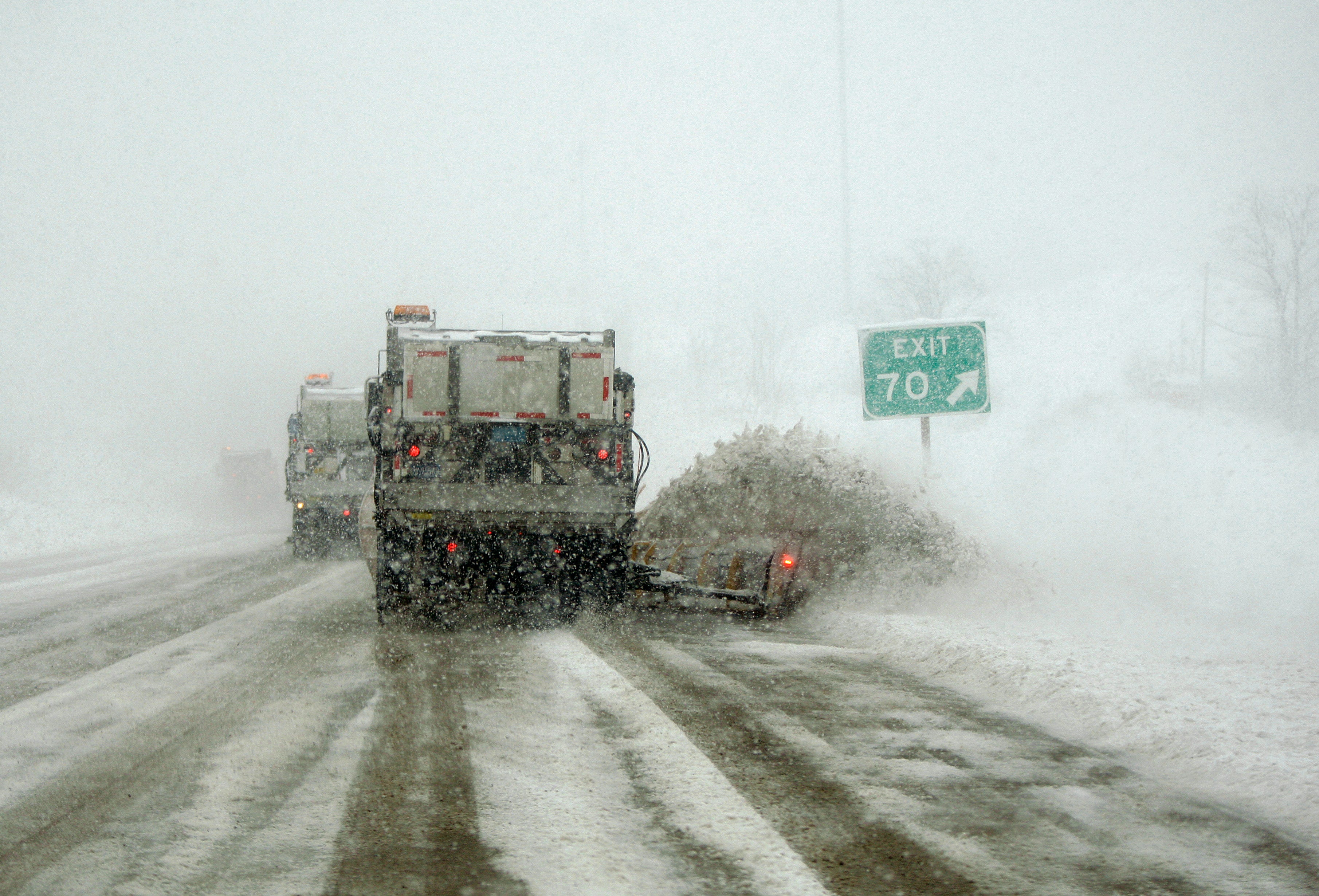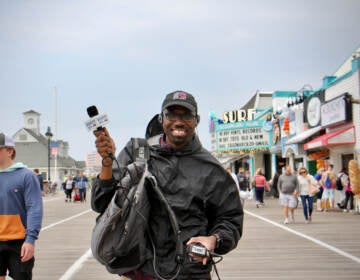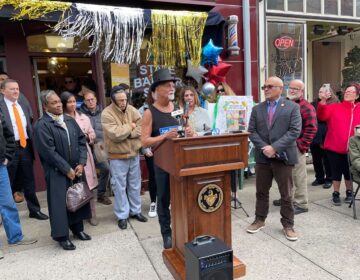N.J. state of emergency begins at noon Saturday
New Jersey Gov. Phil Murphy declared a state of emergency Friday afternoon in advance of storm that is set to impact New Jersey this weekend.

The National Weather Service has issued ice storm and winter storm warnings for some areas. (Carolyn Kaster/File AP Photo)
New Jersey Gov. Phil Murphy declared a state of emergency Friday afternoon in advance of storm that is set to impact New Jersey this weekend with snow, rain, and minor tidal flooding.
The state of emergency will go into effect at noon Saturday.
“Residents are urged to stay off the roads to the extent possible and always use their best judgment when traveling,” Murphy said.
The governor announced that all commercial travel will be banned on interstate highways north of I-195, excluding the New Jersey Turnpike and Garden State Parkway.
The ban includes tractor-trailers, empty straight CDL-weighted trucks, passenger vehicles pulling trailers, recreational vehicles, and motorcycles, according to the New Jersey State Police.
The worst impacts will be in North Jersey, with lesser impacts into the central region of the state. The Jersey Shore will see the least precipitation impacts, with possibly a wintry mix beginning and then changing over to rain, according to the National Weather Service. Bitter cold then arrives on Sunday, likely causing a flash freeze that will cause hazardous travel.
Precipitation will move into the region later today, continuing into Sunday. A very strong cold front on Sunday will bring the coldest conditions of the season so far! The latest briefing package is available here: https://t.co/JiD09By93X#pawx #njwx #dewx #mdwx
— NWS Mount Holly (@NWS_MountHolly) January 19, 2019
The state of emergency declaration authorizes the state to activate and coordinate the preparation, response and recovery efforts for the storm with all county and municipal emergency operations and governmental agencies.
Here are some answers to commonly asked questions about a state of emergency.
Can I drive?
NJOEM: The governor’s declaration does not normally restrict citizen movements or activities. The state may limit access to affected areas due to concerns for public safety but will notify the public of these restrictions. If it is necessary to impose vehicular or personal movement restrictions, the New Jersey Office of Emergency Management will alert the public using all available means, including, but not limited to: the Emergency Alert System, urgent press releases, DOT highway signs, law enforcement teletypes, etc. Every effort will be made by NJOEM to facilitate safe passage for utility, health care and emergency services workers whose presence is necessary for public safety or in response to the emergency.
How long will it last?
NJOEM: The governor will rescind the state of emergency when it is no longer needed to provide necessary support to localities or until the threat of impending danger from the event has passed.
Does it bar commerce?
NJOEM: The Governor’s declaration does not address restrictions on the sale or provision of goods or services. However, your locality may enact restrictions under their local emergency declaration. We recommend that you contact your local government for any specific information.
Does my employer still have to pay me?
NJOEM: The governor’s declaration does not mandate administrative policies for individual businesses or address workplace situations in which employees are unable to travel. Businesses must address hours of operation and compensation on an individual basis. Once a federal disaster is declared, employees unable to work may be eligible for unemployment assistance.
WHYY is your source for fact-based, in-depth journalism and information. As a nonprofit organization, we rely on financial support from readers like you. Please give today.



